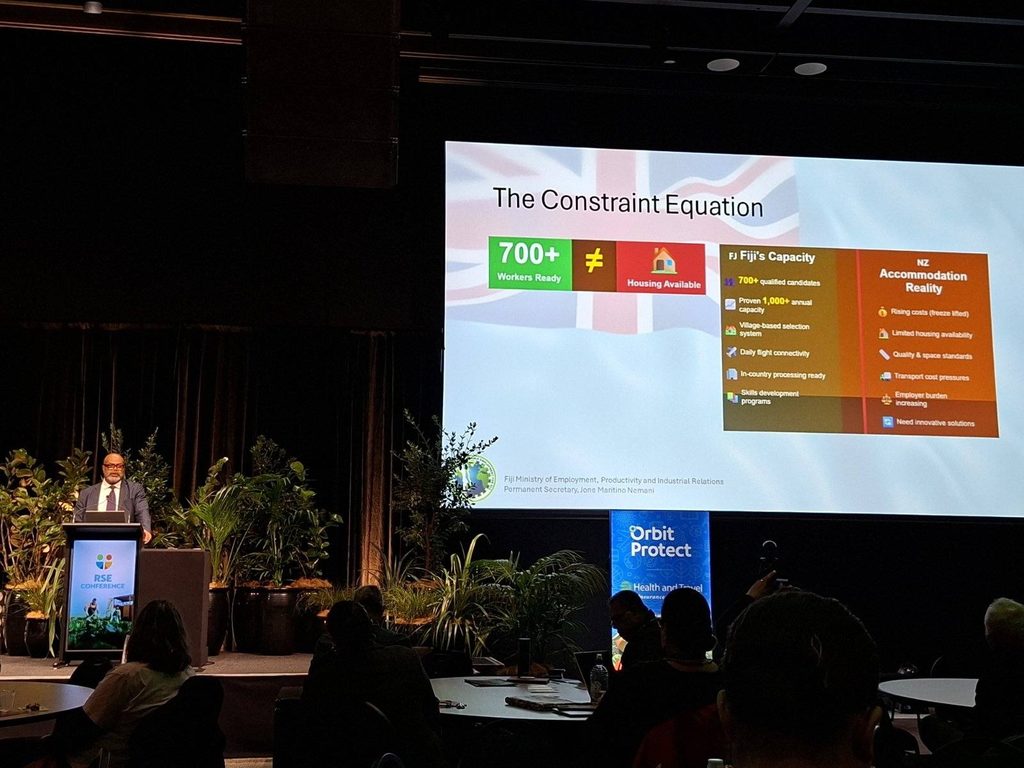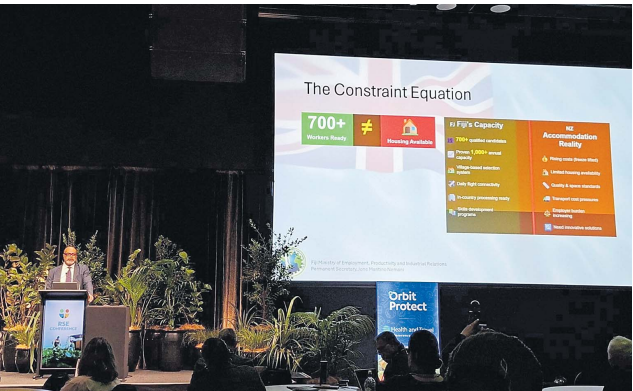Across the Pacific, workers and their families are facing some of the most profound employment challenges in living memory. The rapid pace of industrialisation and globalisation has shifted the demand for labour, often leaving workers scrambling to adapt to new skills and industries. Technological change, from automation to artificial intelligence, is beginning to replace traditional jobs while creating new ones, leaving uncertainty in its wake.
At the same time, climate change is directly threatening livelihoods. Rising seas, shifting weather patterns, and more intense natural disasters put at risk not only the environment, but also the industries our communities rely on: agriculture, tourism, and fisheries.
Labour mobility has provided opportunities, with thousands of Pacific Islanders travelling to Australia and New Zealand under seasonal worker programs. Yet this has also raised concerns about brain drain, family separation, and whether local economies are being left behind.
In the midst of these pressures, the fundamental rights of workers — fair pay, safe workplaces, and dignity in employment — remain under strain. For many Pacific Islanders, the question is not only about finding jobs, but ensuring those jobs provide security, fairness, and the chance of a better future.
It is against this backdrop that this week marks a critical moment for Fiji and the region. From September 1 to 4, 2025, leaders, employers, and workers from across the Pacific will gather at the Crowne Plaza, Wailoaloa, Nadi, for the Pacific Regional Tripartite Employment Conference.
This is not just another meeting. It is a rare platform where governments, employers, workers’ organisations, and partners will sit side by side to confront the challenges that define our era. The theme, “Designing for Disruption: Conference on Decent Work, Climate Change and Security – Celebrating 50 Years of ILO in the Pacific,” could not be more timely.
The permanent secretary, Maritino Nemani, Minister Agni Deo Singh, and the entire Employment Ministry team continue to serve as a beacon of light for Fiji, consistently demonstrating Pacific and global leadership in tackling the most pressing employment challenges of our time. From safeguarding workers’ rights and promoting decent work to leading courageous conversations on climate change, labour mobility, and job security, Fiji has placed itself at the forefront of regional and international labour dialogue. And on this segment, I do not give out praise lightly.
The International Labour Organization (ILO) must also be commended.
This year marks 50 years of the ILO’s presence in the Pacific, half a century of supporting fair labour standards, social dialogue, and worker protection. Few institutions have shaped the employment landscape of our region as profoundly, and its continued commitment is invaluable.
So, what will be discussed this week?
At the heart of the agenda are fundamental rights at work, the bedrock of the ILO system. These include freedom of association, the right to collective bargaining, and the elimination of forced labour, child labour, and workplace discrimination.
The conference will also examine decent work and job security in the context of climate change. For small island states, this is not an abstract debate; it is a matter of survival. Protecting workers whose industries are directly affected by environmental change will require bold policies and regional cooperation.
Another critical focus will be labour mobility and migration. While remittances have become a lifeline for many Pacific economies, the challenge remains: How do we balance the opportunities of overseas work with the need to strengthen and protect our own domestic labour markets?
Occupational health and safety will also be high on the agenda. From construction sites to factories and offices, ensuring safe workplaces is not only a moral duty but also essential for productivity and national development.
Beyond these technical issues, the very structure of our labour markets will be under review. How can we create systems that are resilient in the face of disruption from technology, global trade, or climate shocks?
As we look ahead, the hope is that this gathering will result not only in stronger policies but also in renewed determination to protect the dignity of every Pacific worker. If achieved, it will strengthen the resilience of our economies, the security of our communities, and the faith of our people in a better tomorrow.
For Fiji, hosting this conference is both an honour and a responsibility. It is a chance to lead by example, to highlight the challenges we face, and to push for solutions that will safeguard the rights and futures of Pacific workers for generations to come.
Until next week, take care and be safe.
Employment, Productivity and Industrial Relations Ministry Permanent Secretary Maritino Nemani, at the Recognised Seasonal Employer conference. Picture: SUPPLIED



